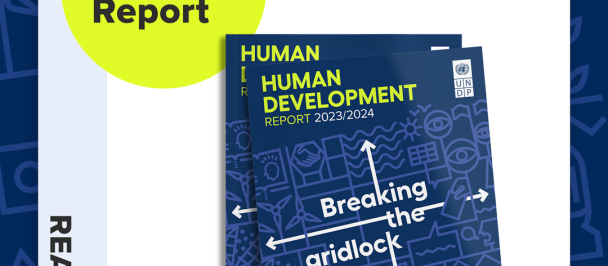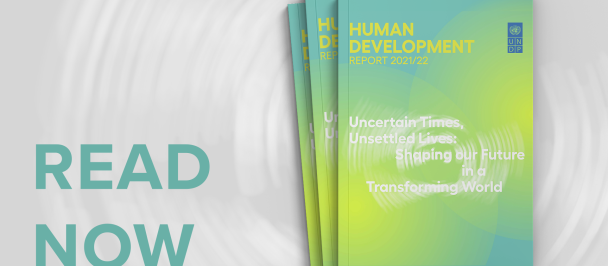2025 Human Development Report: Human Development progress slows to a 35-year low according to the UN Development Programme Report
Sustained Progress: Montenegro among countries with very high development
May 6, 2025

Brussels/Podgorica, 6 May 2025 – According to the latest Human Development Report published by the United Nations Development Programme (UNDP), Montenegro has retained its status as a country with very high human development for the eighth consecutive year.
The Human Development Index (HDI) is a composite indicator used to evaluate long-term progress in three fundamental areas of human development: longevity and health, access to education, and a decent standard of living. With the HDI value of 0.862, Montenegro ranks 48 out of 193 countries and territories.
The top of the ladder is held by Iceland, while the top ten include: Norway, Switzerland, Denmark, Germany, Sweden, Australia, Hong Kong (China), Netherlands, and Belgium. On the other hand, the lowest HDI scores were recorded in Central African Republic, Somalia and South Sudan.
This year, all other countries in the region, apart from Montenegro, are in this category, including Slovenia (21), Croatia (41) and Serbia (62), followed by North Macedonia (68), Albania (71), and Bosnia and Herzegovina (74).
Between 2003 and 2023, the HDI value in Montenegro has been increased from 0.749 to 0.862, which represents a jump of 12,8%. According to the latest HDR, life expectancy in Montenegro changed by 2,9 years and is now 77 years, expected years of schooling for children changed by 3 years reaching 15.5, and mean years of schooling for adults aged 25 years and older changed by 2.3 years and is now 12.8. Montenegro`s GNI per capita changed by about 74.0 percent between 2023 and 2023.
The inequality adjusted HDI (IHDI) considers inequalities in all three HDI dimensions by “discounting” the average value of each measure according to its level of inequality. The “loss” in human development due to inequality is represented by the difference between HDI and IHDI and amounts to 10.6%.
The Human Development Report (HDR) titled "A Matter of Choice: People and Possibilities in the Age of AI”, which has been launched in Brussels today, in a hybrid event co-hosted by UNDP, the European Commission, and the Kingdom of Belgium, reveals a troubling new reality: human development is losing momentum and is precariously fragile. Without action, the world could find itself on the brink of a development crisis.
For 30 years, the Human Development Index (HDI) showed a consistent increase in development progress and a decrease in inequality. Although the crises of 2020-2021 disrupted this trend, last year’s report saw tentative signs of recovery. The 2025 HDR has crushed this optimism. Excluding the crises in 2020-2021, the meagre increase in global HDI projected for 2024 in this year’s report marks the smallest increase since the index was first introduced in 1990.
“For decades, we have been on track to reach a very high human development world by 2030, but this deceleration signals a very real threat to global progress,” said Achim Steiner, UNDP Administrator. “If 2024’s sluggish progress becomes ‘the new normal’, that 2030 milestone could slip by decades – making our world less secure, more divided, and more vulnerable to economic and ecological shocks.”
In addition, amid ongoing global turmoil, inequality has increased for the fourth consecutive year. The situation is especially severe for countries with the lowest Human Development Index (HDI) scores, as the most vulnerable continue to fall further behind. This decline is driven by the narrowing of traditional paths to development, which previously created jobs on a large scale and reduced poverty through expanded manufacturing and exports to international markets.
Women’s rights are a key indicator of a society’s overall progress, as gender disparities remain among the most deeply rooted forms of inequality. The balance in human development outcomes between men and women is measured through two key indices: the Gender Development Index (GDI) and the Gender Inequality Index (GII).
The GDI represents the ratio between female and male HDI, and measures gender differences in three basic dimensions of human development. The value of female HDI for 2023 for Montenegro is 0.855 compared to 0.868, the value of HDI for men, resulting in a GDI value of 0.984.
Regarding the value of the GII, which measures gender inequalities in three dimensions (reproductive health, empowerment and participation in the labor market), Montenegro is in 40th place out of 172 countries in 2023.
UNDP Resident Representative Ekaterina Paniklova noted, “Montenegro continues to advance in the HDI, making steady progress through a just transition and digital transformation, toward green development and EU membership - an achievement that would also cover nearly two-thirds of the global Sustainable Development Goals, setting a strong example of how regional integration can drive sustainable growth. Amid global challenges, Artificial Intelligence presents a transformative opportunity, and with ongoing advances in digital public services and the right governance, it can help Montenegro accelerate development and shape a more inclusive, resilient, and sustainable future for the people of Montenegro.”
The report highlights how Artificial Intelligence (AI) could help overcome current challenges of human development, offering fresh opportunities for progress, especially in lower-income countries. While acknowledging that AI is not a universal solution, the report emphasizes that smart policy choices today can unlock new pathways for growth and inclusion.
Survey results show global optimism: 60% of respondents believe AI will positively impact their jobs, and only 13% fear job losses. In low- and medium-Human Development Index (HDI) countries, 70% expect AI to boost productivity, with two-thirds planning to use it in education, healthcare, or work within the next year.
The report advocates for a human-centered approach to AI, focused on three key priorities: enabling human-AI collaboration, ensuring human oversight in AI systems, and modernizing education and health sectors for the 21st century. With adoption already underway, particularly in lower-HDI countries, closing gaps in electricity and internet access is critical to ensuring no one is excluded. But access alone is not enough. The real impact of AI will depend on how well it is used to support and enhance human potential.
Human Development Report is available here.
Global press release is available here.

 Locations
Locations
